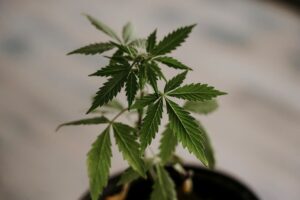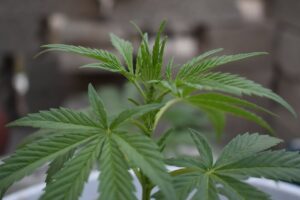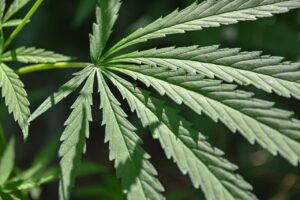Curious about hemp and CBD? Wondering what sets them apart and why it’s crucial? Dive into the world of hemp and CBD to uncover the distinctions that matter. From their origins to their benefits, understanding these two powerhouses can revolutionize your wellness journey. Stay tuned as we unravel the mysteries behind hemp and CBD, shedding light on their unique properties and applications in everyday life. Get ready to explore the fascinating realm of hemp and CBD, discovering how they can make a significant difference in your health and well-being.
Table of Contents
ToggleUnderstanding the Basics
CBD Explained
CBD, short for cannabidiol, is a compound derived from the cannabis plant, distinct from hemp. It offers a range of health benefits without the psychoactive effects associated with THC. The origins of CBD can be traced back to its extraction from cannabis plants.
The benefits of CBD extend to mental health by providing relief from anxiety and depression. It promotes overall well-being through its anti-inflammatory properties. Notably, CBD’s non-psychoactive nature makes it a safe option for various age groups seeking natural remedies.
Hemp Overview
Hemp, unlike CBD, is primarily cultivated for its industrial uses such as textiles, paper, and biodegradable plastics. Hemp seeds are rich in protein and essential fatty acids beneficial for heart health. Similarly, hemp oil contains omega-3 and omega-6 fatty acids crucial for overall wellness.
The cultivation of hemp dates back centuries and has been utilized for creating sustainable products like clothing and building materials. In contrast to CBD’s focus on specific medicinal properties, hemp’s versatility lies in its nutritional value and eco-friendly applications.
Cannabis Products
Various cannabis products flood the market today, ranging from oils to edibles and topicals. These products cater to different consumer preferences and needs. Cannabis-based skincare items offer natural alternatives for skin conditions like acne and eczema.
In therapeutic settings, cannabis products are used to alleviate chronic pain, reduce inflammation, and aid in sleep disorders. Their adaptability in addressing diverse health concerns showcases the growing acceptance of alternative medicine approaches.
Key Differences Between CBD and Hemp
Source and Extraction
CBD is primarily extracted from the flowers and leaves of the hemp plant, while hemp oil is extracted from the seeds. Proper extraction methods are crucial to maintain the purity and efficacy of CBD and hemp products. Using high-quality sources ensures the end product is free from contaminants and retains its beneficial properties.
Chemical Composition
The chemical composition of CBD includes cannabinoids like cannabidiol, which interacts with the body’s endocannabinoid system to promote relaxation and pain relief. On the other hand, hemp contains essential fatty acids, vitamins, and minerals that contribute to overall health. These components determine the unique benefits of each product.
Usage and Benefits
Hemp products have a wide range of uses, from skincare to textiles, due to their durable fibers and eco-friendly nature. CBD, on the other hand, is renowned for its therapeutic benefits in managing anxiety and chronic pain. Hemp oil provides essential nutrients like omega-3 and omega-6 fatty acids that support heart health and reduce inflammation.
Types of CBD
Hemp-derived CBD
Hemp-derived CBD is extracted from the hemp plant, containing minimal THC levels, ensuring no psychoactive effects. These products are legal in many regions due to their low THC content. Hemp-derived CBD offers various benefits, including pain relief, anxiety reduction, and anti-inflammatory properties. The accessibility of these products has increased significantly with the growing popularity of CBD.
One significant advantage of using hemp-derived CBD is its versatility in addressing a wide range of health issues. From chronic pain management to alleviating symptoms of anxiety and depression, hemp-derived CBD has shown promising results. Moreover, these products are often preferred for their natural composition and minimal side effects compared to traditional medications.
The legality of hemp-derived CBD products varies across different countries and states. In the United States, for instance, the 2018 Farm Bill legalized the cultivation and sale of hemp-derived products as long as they contain less than 0.3% THC. This legal clarity has led to a surge in the availability of hemp-derived CBD products in various forms such as oils, tinctures, edibles, and topicals.
Cannabis-derived CBD
Cannabis-derived CBD, on the other hand, is extracted from marijuana plants that have higher THC levels compared to hemp. The main difference lies in the psychoactive effects associated with cannabis-derived CBD, which can induce a “high” sensation due to its THC content. While both types share similar therapeutic benefits, cannabis-derived CBD may offer stronger effects due to its higher potency.
The potency and effects of cannabis-derived CBD products can vary significantly depending on the strain and extraction methods used. Consumers seeking more potent solutions for conditions like chronic pain or severe anxiety may opt for cannabis-derived options for enhanced efficacy. However, it’s crucial to consider the legal implications surrounding cannabis-derived CBD, especially in regions where marijuana remains illegal.
When choosing between hemp-derived and cannabis-derived CBD, individuals should consider factors such as desired effects, legal restrictions, and personal preferences regarding psychoactive properties. Both types offer unique advantages based on individual needs and regulatory frameworks.
Legal Insights on Cannabis Products
Regulations Overview
Regulations governing CBD products vary, with strict guidelines on production and sale. Compliance is crucial for ensuring product safety and quality. Regulatory bodies play a vital role in monitoring the industry to uphold standards.
- Non-compliance can lead to fines or product recalls.
- Regulations cover aspects like THC content limits and labeling requirements.
Hemp Legality The legalization of hemp cultivation and commercial use has sparked significant changes. It has opened up new opportunities for businesses while posing challenges related to oversight and quality control. The legal status of hemp impacts the industry’s growth and the economy at large.
- Hemp’s versatility makes it a valuable commodity for various industries.
- Challenges include ensuring consistency in product quality across different regions.
CBD Legality Navigating the legal landscape of CBD products requires a deep understanding of regional laws. Factors such as THC content, extraction methods, and labeling influence the legality of CBD products. Staying informed about evolving laws is essential for businesses operating in this sector.
- Differences in state and federal regulations can create complexities for businesses.
- Adhering to regulations builds trust with consumers and ensures product safety.
Importance of Knowing CBD Types
Consumer Choices
When exploring the CBD and hemp market, consumers encounter a wide array of products. From CBD oils to edibles, each product offers unique benefits. Factors such as desired effects, dosage preferences, and convenience play a crucial role in decision-making.
- Consumers must consider the CBD concentration, method of consumption, and product quality when choosing between different CBD and hemp options.
- Opting for high-quality and reputable brands ensures product safety, efficacy, and compliance with regulations.
Health Implications
Using CBD and hemp products can have significant health implications. The therapeutic benefits of CBD include its effectiveness in managing conditions like anxiety, chronic pain, and even epilepsy. Seeking guidance from healthcare professionals before integrating CBD into one’s health regimen is vital.
- The potential health benefits of CBD make it a popular choice for individuals seeking natural remedies.
- Consulting healthcare professionals helps in determining the appropriate dosage and usage based on individual health needs.
Legal Considerations
Consumers must be aware of the legal landscape surrounding CBD products to make informed choices. Understanding labeling requirements, quality standards, and legality is crucial to avoid legal issues or health risks associated with counterfeit or substandard products.
- Labeling requirements ensure that consumers are well-informed about the contents and potency of CBD products.
- Purchasing from reputable sources reduces the risk of encountering counterfeit or low-quality CBD items in the market.
Comparing Marijuana and Hemp CBD
THC Content
When it comes to THC content, it’s crucial to understand the disparities between marijuana and hemp products. Marijuana typically contains high levels of THC, the psychoactive compound, inducing a “high.” On the contrary, hemp-derived CBD has minimal THC content (less than 0.3%), ensuring no intoxicating effects.
The legal implications of THC content are significant. CBD products sourced from hemp with low THC levels are federally legal in the US under the 2018 Farm Bill. Conversely, marijuana-derived CBD with high THC concentrations remains illegal at the federal level but legal in some states.
Legal Status
In terms of legal status, CBD and hemp products have experienced a shift in acceptance and regulation. The legal landscape surrounding these products is complex, varying from state to state and country to country. While some regions have embraced their use, others maintain strict regulations.
The regulatory frameworks for CBD and hemp products aim to ensure quality, safety, and consistency for consumers. These regulations oversee aspects like cultivation, extraction methods, labeling requirements, and distribution channels. As the industry evolves, authorities continue to refine these guidelines.
Health Benefits
Exploring the health benefits of CBD reveals its potential as a natural remedy for various conditions. Research suggests that CBD may offer relief from pain, anxiety, insomnia, and even neurological disorders like epilepsy. Its anti-inflammatory properties also make it a promising option for skincare.
CBD’s therapeutic properties extend to managing chronic pain without the addictive risks associated with opioids. Moreover, its anxiolytic effects can help alleviate symptoms of anxiety disorders without causing dependency or severe side effects commonly seen with traditional medications.
Safety and Risks
Smoking Hemp
Smoking hemp involves inhaling the plant’s dried flowers or extracts through various methods like joints or pipes. The effects of smoking hemp are quicker due to direct inhalation into the lungs. Compared to other forms of CBD consumption, smoking hemp provides rapid relief for pain or anxiety. However, smoking hemp may pose risks such as lung irritation from combustion byproducts.
When considering smoking hemp, individuals should be aware of the potential health implications associated with inhaling smoke. It’s essential to choose high-quality hemp products free from contaminants that could harm respiratory health. For recreational users, moderation is key to prevent overconsumption and its adverse effects on overall well-being.
Indica vs Sativa
Indica and Sativa are two primary types of cannabis strains with distinct characteristics. Indica strains are known for their relaxing properties, making them ideal for nighttime use or managing insomnia. On the other hand, Sativa strains offer energizing effects that can boost creativity and focus during the day.
Understanding the differences between Indica and Sativa is crucial for consumers seeking specific effects from CBD products. While Indica is preferred for relaxation and pain relief, Sativa is more suitable for enhancing mood and productivity. By knowing these distinctions, individuals can make informed choices based on their desired outcomes.
Drug Implications
Consuming CBD and hemp products may have implications on drug testing due to trace amounts of THC present in some formulations. These products can potentially lead to false positives during drug screenings, especially if using full-spectrum CBD containing THC.
Individuals undergoing regular drug tests should exercise caution when using CBD and hemp products to avoid unwanted consequences. Opting for broad-spectrum or isolate CBD products with no detectable THC levels can minimize the risk of failing drug tests while still reaping the benefits of CBD.
FAQs on CBD and Hemp
Common Questions
CBD and hemp are often confused, but they have distinct differences. What sets them apart? CBD is a compound found in cannabis plants, while hemp refers to the plant itself. Can you get high from CBD or hemp products? No, they contain minimal THC levels. Are CBD and hemp legal? Yes, as long as they contain less than 0.3% THC.
When it comes to choosing between CBD and hemp products, consider your desired effects. CBD is known for its potential health benefits, while hemp is commonly used in textiles and skincare. In terms of extraction methods, CBD is usually extracted from the flowers and leaves of cannabis plants, while hemp oil is extracted from the seeds.
Expert Answers
Experts emphasize that the key difference lies in their uses and properties. CBD, known for its therapeutic effects, has gained popularity for managing pain and anxiety. On the other hand, hemp is valued for its nutritional content and sustainability in various industries.
In recent years, the CBD industry has experienced rapid growth due to increased awareness of its potential benefits. However, experts caution consumers to research brands thoroughly before making a purchase. Look for products with third-party lab testing to ensure quality and safety.
Summary
You’ve learned the crucial distinctions between CBD and hemp, the various types of CBD products available, legal considerations surrounding cannabis, and the importance of being informed about different CBD varieties. We compared marijuana and hemp CBD, discussed safety aspects, and addressed common FAQs related to these products. Now armed with this knowledge, you can make informed decisions when choosing CBD products, ensuring you understand what you’re consuming and its potential effects on your well-being.
Understanding the differences between hemp and CBD empowers you to navigate the market confidently, prioritize safety in product selection, and make choices aligned with your needs and preferences. Stay informed, keep exploring new information in this rapidly evolving field, and remember to consult professionals for personalized advice on incorporating CBD into your wellness routine. Your journey to understanding CBD and hemp is just beginning – stay curious and informed!
Do You Need a Cannabis Dispensary You Can Trust?
Get Ready to Join the Holistic Health Revolution Today! For over a decade, A Therapeutic Alternative has been at the forefront of advocating for medical cannabis patient’s rights. Our passion for providing high-quality products and services has helped us inspire health on a holistic level for our members, employees, and community. Located in the heart of the medical district in Midtown Sacramento, our facilities prioritize education and empower our staff, industry, and members through knowledge. We don’t just talk the talk, we walk the walk, modeling professionalism, compassion, and integrity in the industry. With an ADA lift and ample parking options, including a lot directly behind the building and free street parking, visiting us has never been easier. So, if you’re looking for top-notch Indica Vape Cartridges and a community dedicated to health and happiness, look no further than A Therapeutic Alternative. Join the movement today and discover the transformative power of holistic health.




